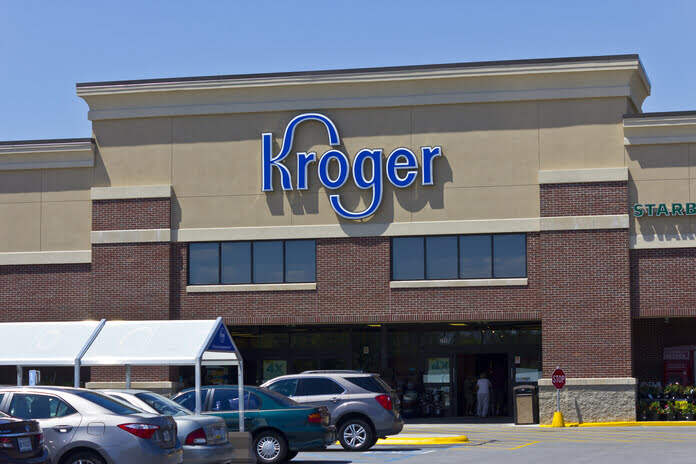Kroger Stock (NYSE:KR)
In the first quarter, Kroger (NYSE:KR) reported that its same-store sales, excluding fuel, were up 3.5%, above analysts’ expectations for an increase of 3.0%.
The company’s adjusted FIFO operating profit was $1.67B, higher than the $1.64B market expectation and the $1.60B profit recorded in 2016.
The quarterly gross margin of 22.3% of sales beat the consensus estimate of 21.9%, while the FIFO gross margin rate ex-fuel rose by 21 basis points. Kroger accomplished the rate hike by investing in pricing to maintain its competitive price position and provide its consumers with more value. Higher shrink and increased promotional price investments were partially offset by the improvement in the FIFO gross margin rate, excluding fuel, primarily attributable to the performance of private label brands, sourcing benefits, lower supply chain costs, and the effect of a terminated agreement with Express Scripts.
Kroger said it intends to preserve its current investment grade debt rating while investing in the company to promote long-term sustainable net profits growth. The supermarket chain plans to maintain its quarterly dividend payments and boost them. Kroger stock has put its share buyback program on hold to focus on de-leveraging in light of its planned merger with Albertsons.
Compared to the prior year’s ratio of 1.68 (total net debt to adjusted EBITDA), Kroger’s new figure is 1.34. The goal for the Cincinnati-based firm is to have a total net debt to adjusted EBITDA between $2.30 and $2.50.
Despite the impact of Express Scripts, Kroger is sticking with its previous full-year projection of 1.0% to 2.0% in the same sales, excluding fuel, with underlying growth of 2.5% to 3.5%. Expected Adjusted EPS is $4.45 to $4.60, which is higher than the $4.50 average estimate.
In Thursday’s premarket activity, Kroger stock fell 1.50% to $46.49, with its 52-week low being $41.82 and its high being $52.00.
Featured Image: Megapixl © Jetcityimage
















